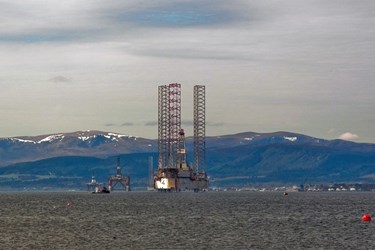Oil Wastewater Ponds Under Scrutiny
Regulators in California are looking for a way to crack down on wastewater ponds formed during oil production.
“In an inventory completed this November, staff at the Central Valley Regional Water Control Board found 1,074 wastewater ponds. Of those, 716 are still active, though 182 were designated as unregulated. The board has been issuing enforcement actions since April to operators that are out of compliance,” KBAK reported.
Enforcement actions aim to prevent harm to the environment and the drinking water supply. For instance, regulators put a special focus on a facility operated by Valley Water Management located near fresh groundwater.
“It consists of 24 unlined wastewater ponds and receives wastewater from the nearby Fee 34 facility, also operated by Valley Water. What makes it unique is the use of sprinklers that discharge about 4,000 gallons of wastewater a day onto the hillsides,” the report said.
Authorities had given the facility a chance to clean up its act, but a threat to the water supply remained.
“The Central Valley Water Board issued a notice of violation in 2013 requiring the operator to provide them with groundwater samples. Upon analysis of the samples, board staff decided to issue a cease and desist order,” the report said.
Environmentalists say oversight for oil waste often fails to measure up. In Texas, for example, the state does not track waste spills from energy development.
Meanwhile, “the rules are so vague and unenforceable that insiders say companies don't even need to notify state officials when they have a spill. Many consider notifying [the Railroad Commission] about waste spills to be voluntary, though the agency insists otherwise,” E&E Publishing reported.
“Most other states with oil and gas producers track wastewater spills and require drillers to report them. But while Texas tracks spills of crude oil and condensate, its records leave out spills of the waste fluid often called ‘salt water,’ or ‘produced water,’” the report said.
When spills occur, companies do face penalties. “In general, civil lawsuits cover the damage to the environment and damage because of poor operational practices,” the Billings Gazette reported, citing David Glass of the North Dakota Health Department. State agencies “look at how many days the violation occurred, as well as how well the company is cleaning up the mess and how cooperative it is being before settling on a final penalty.”
For similar stories, visit Water Online’s Water & Wastewater Treatment For The Petroleum & Refining Industry Solutions Center.
Image credit: "Oil rigs, Cromarty Firth, Scotland, 18 April 2011," Phillip Capper © 2011, used under an Attribution 2.0 Generic license: https://creativecommons.org/licenses/by/2.0/
http://www.wateronline.com/doc/oil-wastewater-ponds-under-scrutiny-0001

